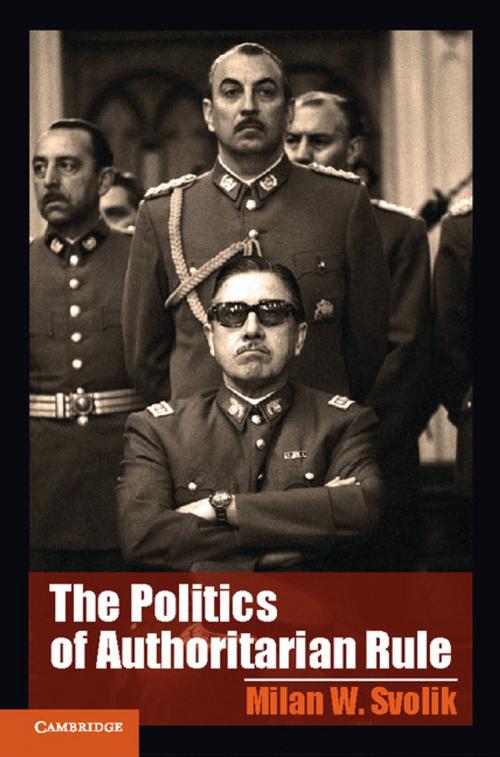The Politics of Authoritarian Rule
Nonfiction, Social & Cultural Studies, Political Science, International, Foreign Legal Systems, Business & Finance| Author: | Professor Milan W. Svolik | ISBN: | 9781139564700 |
| Publisher: | Cambridge University Press | Publication: | September 17, 2012 |
| Imprint: | Cambridge University Press | Language: | English |
| Author: | Professor Milan W. Svolik |
| ISBN: | 9781139564700 |
| Publisher: | Cambridge University Press |
| Publication: | September 17, 2012 |
| Imprint: | Cambridge University Press |
| Language: | English |
What drives politics in dictatorships? Milan W. Svolik argues authoritarian regimes must resolve two fundamental conflicts. Dictators face threats from the masses over which they rule - the problem of authoritarian control. Secondly from the elites with whom dictators rule - the problem of authoritarian power-sharing. Using the tools of game theory, Svolik explains why some dictators establish personal autocracy and stay in power for decades; why elsewhere leadership changes are regular and institutionalized, as in contemporary China; why some dictatorships are ruled by soldiers, as Uganda was under Idi Amin; why many authoritarian regimes, such as PRI-era Mexico, maintain regime-sanctioned political parties; and why a country's authoritarian past casts a long shadow over its prospects for democracy, as the unfolding events of the Arab Spring reveal. Svolik complements these and other historical case studies with the statistical analysis on institutions, leaders and ruling coalitions across dictatorships from 1946 to 2008.
What drives politics in dictatorships? Milan W. Svolik argues authoritarian regimes must resolve two fundamental conflicts. Dictators face threats from the masses over which they rule - the problem of authoritarian control. Secondly from the elites with whom dictators rule - the problem of authoritarian power-sharing. Using the tools of game theory, Svolik explains why some dictators establish personal autocracy and stay in power for decades; why elsewhere leadership changes are regular and institutionalized, as in contemporary China; why some dictatorships are ruled by soldiers, as Uganda was under Idi Amin; why many authoritarian regimes, such as PRI-era Mexico, maintain regime-sanctioned political parties; and why a country's authoritarian past casts a long shadow over its prospects for democracy, as the unfolding events of the Arab Spring reveal. Svolik complements these and other historical case studies with the statistical analysis on institutions, leaders and ruling coalitions across dictatorships from 1946 to 2008.















